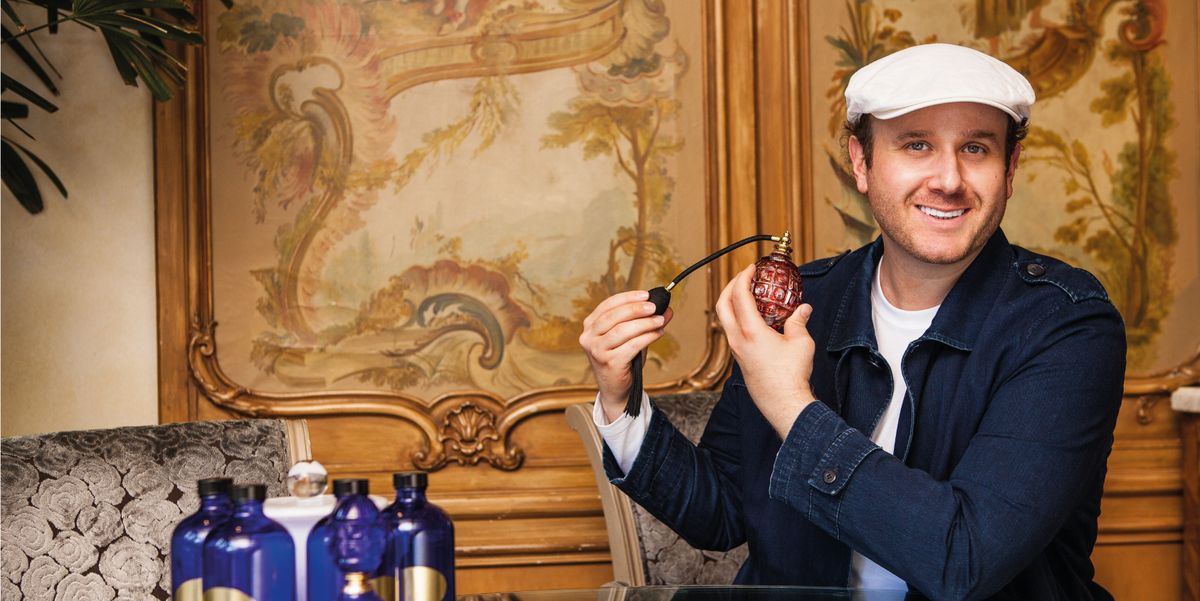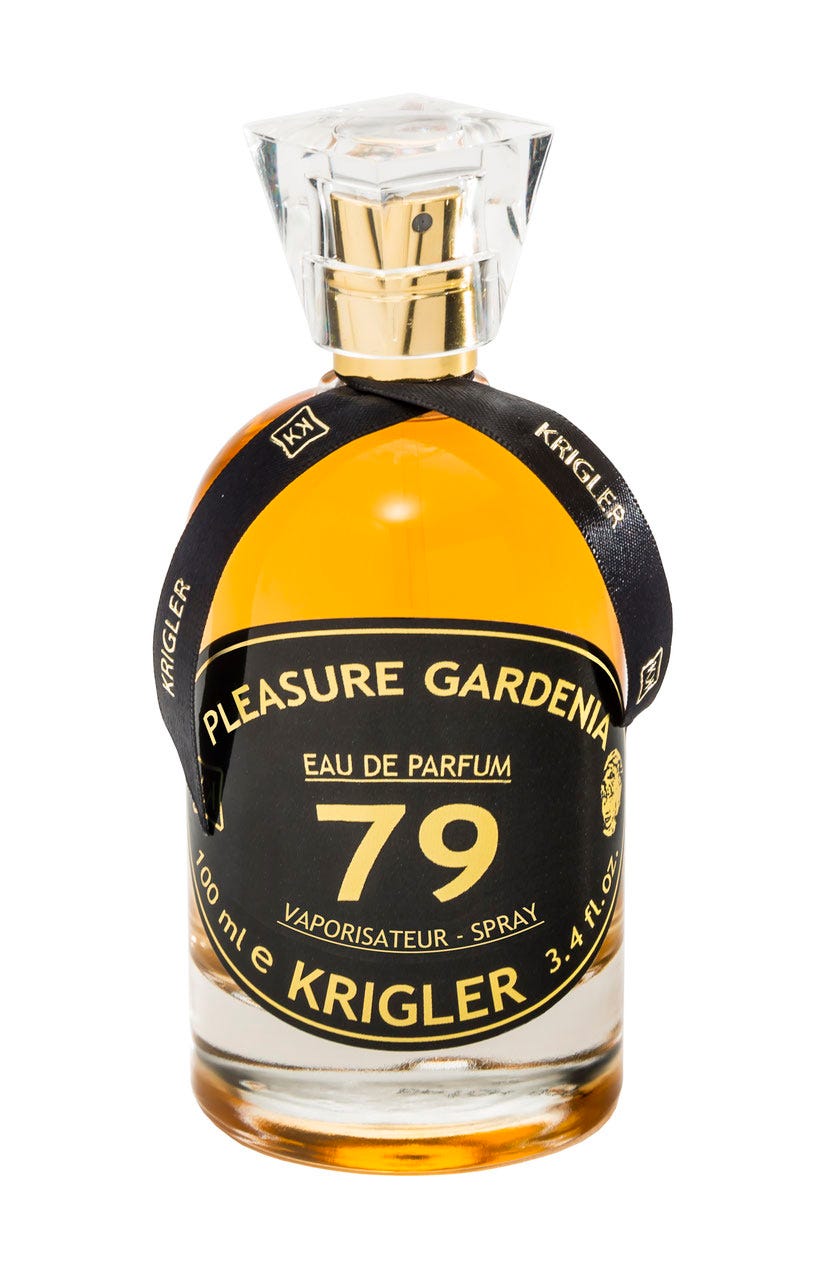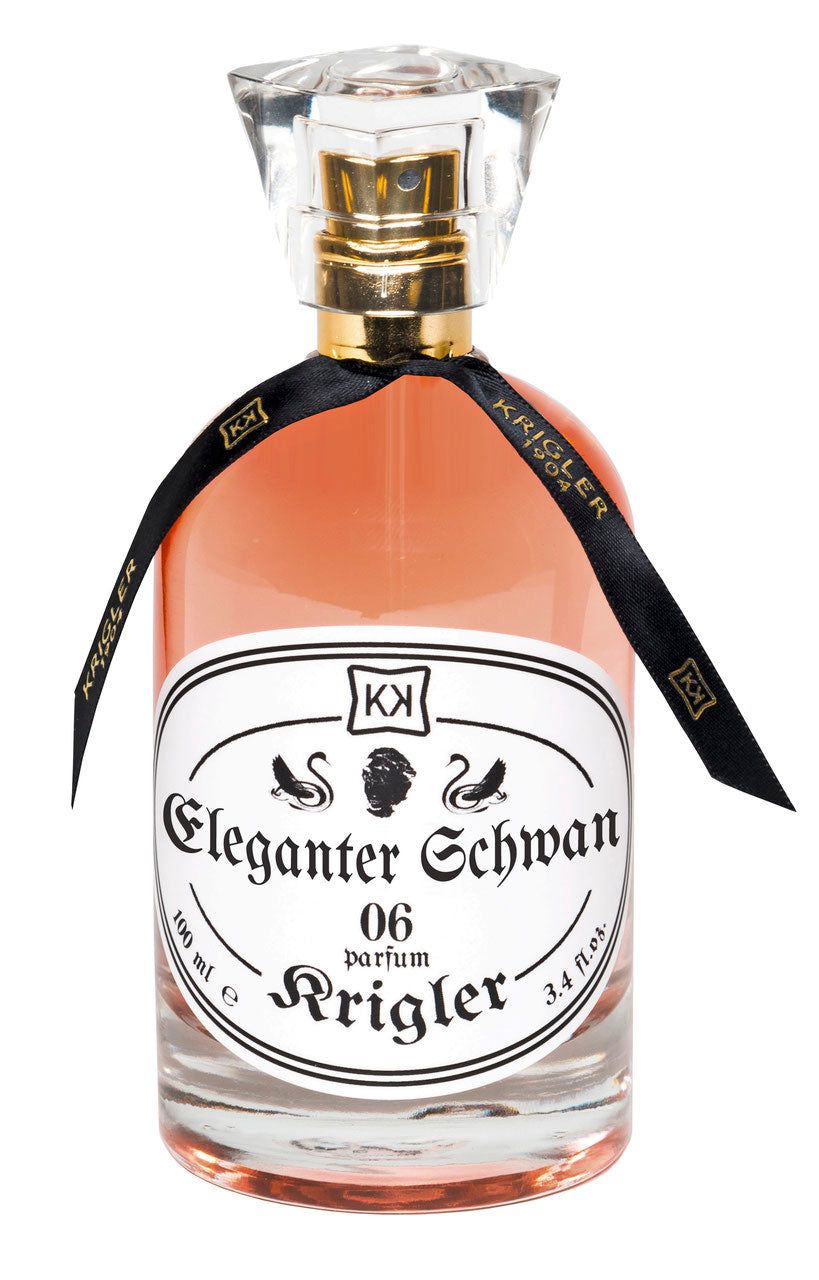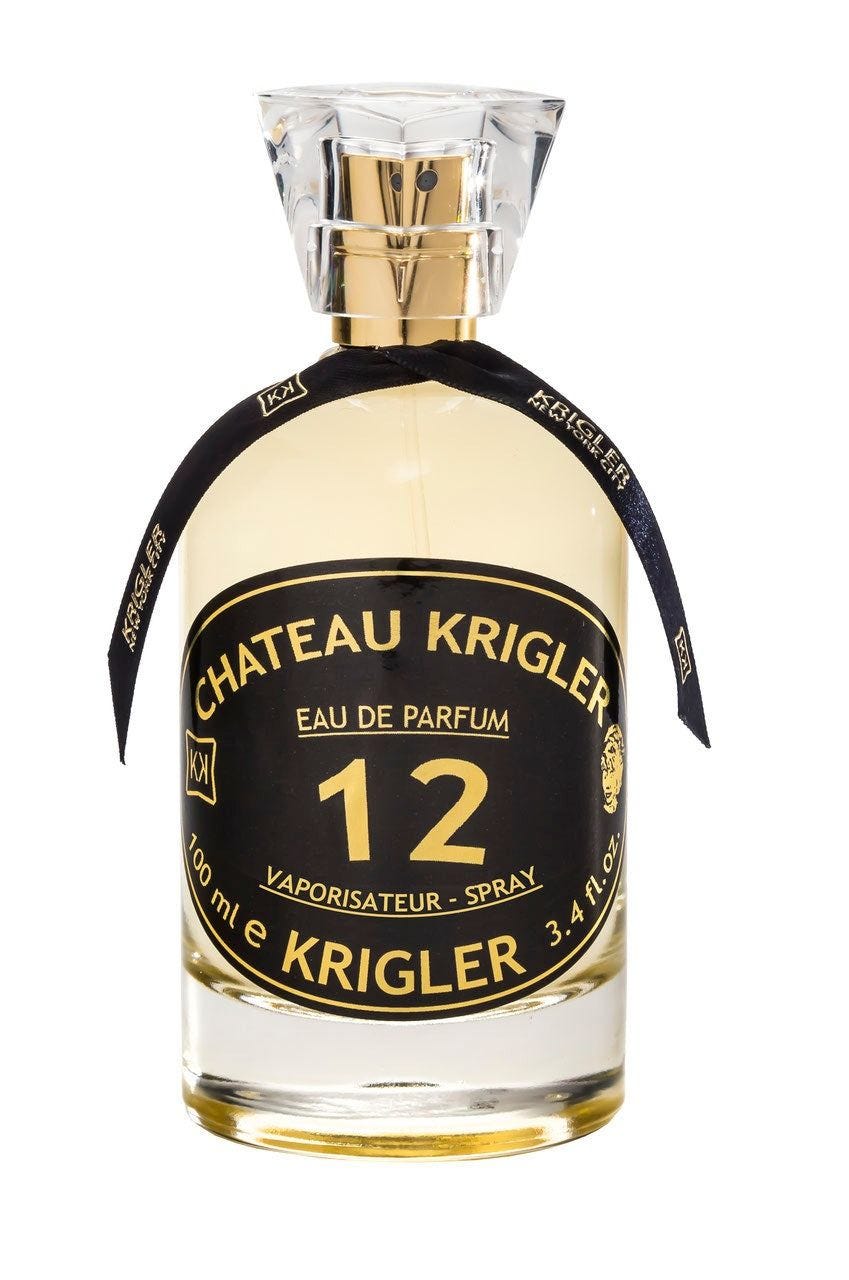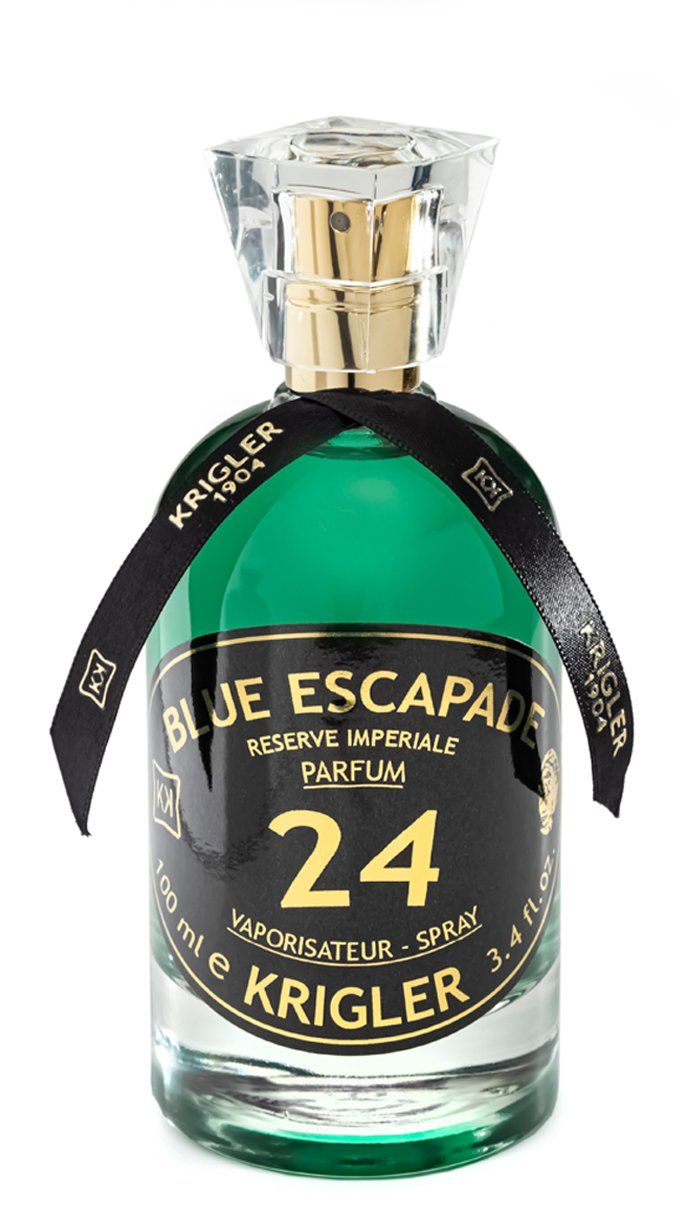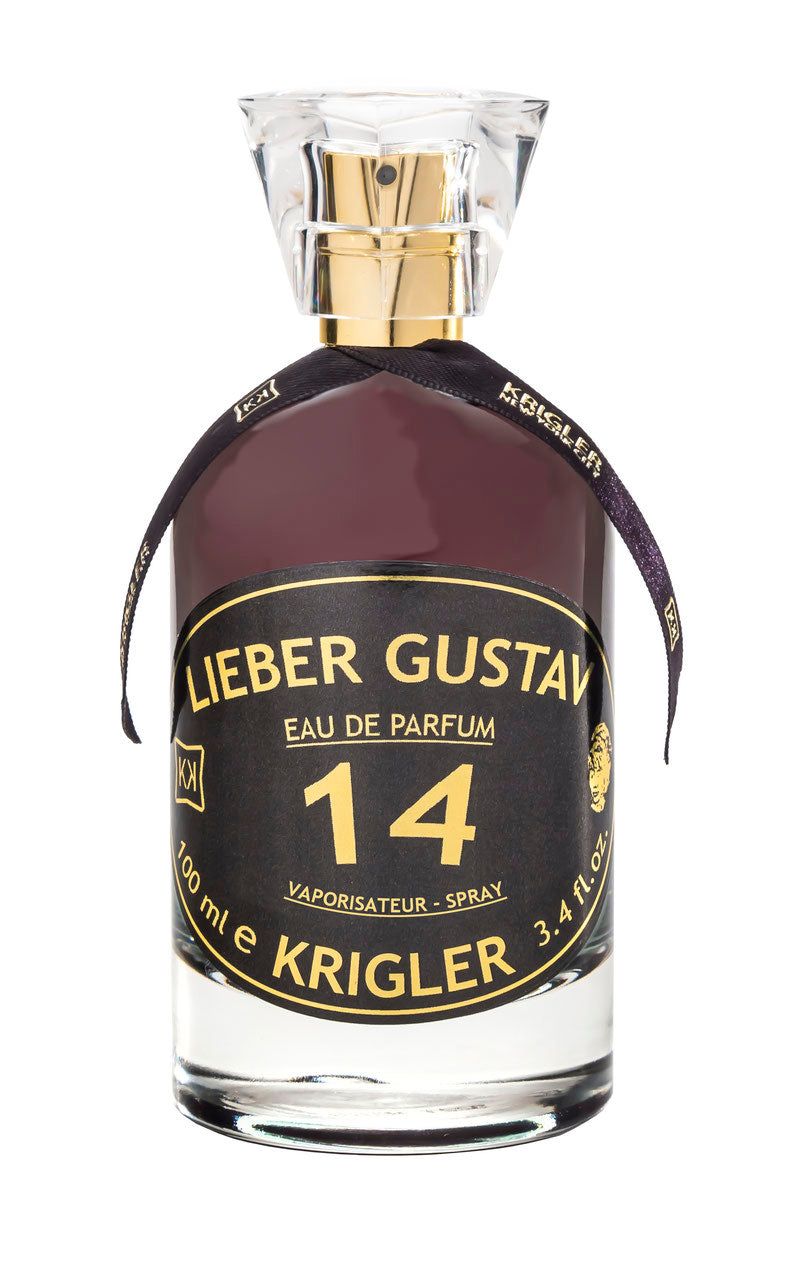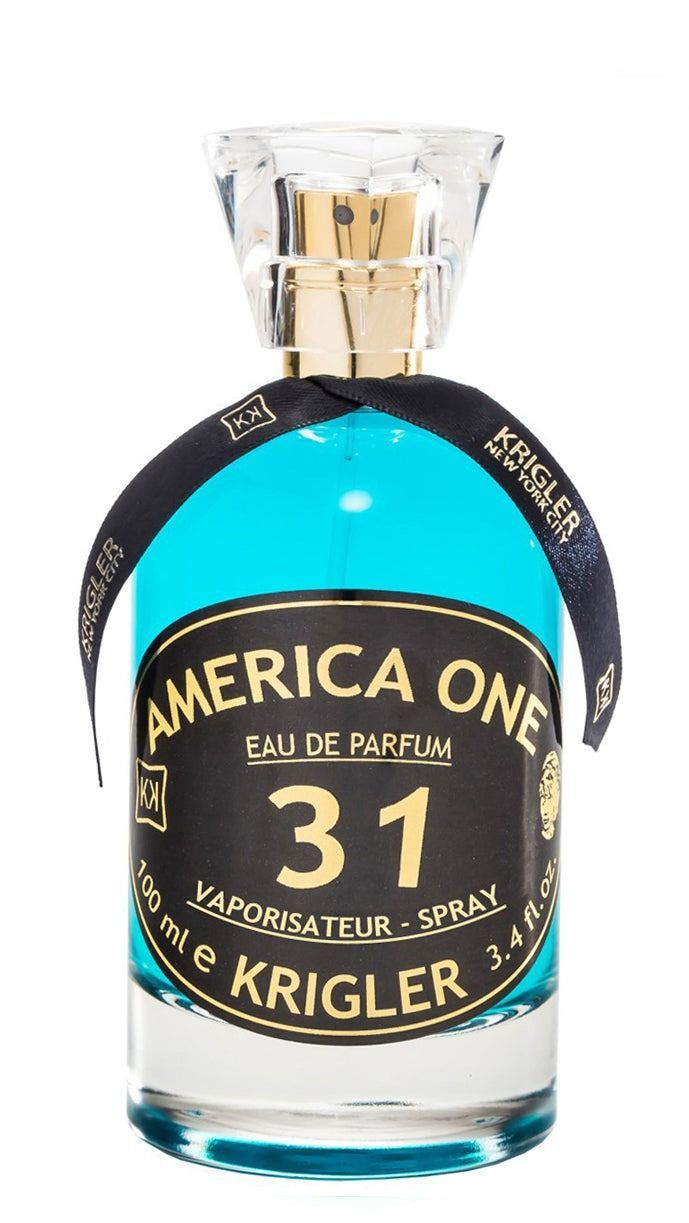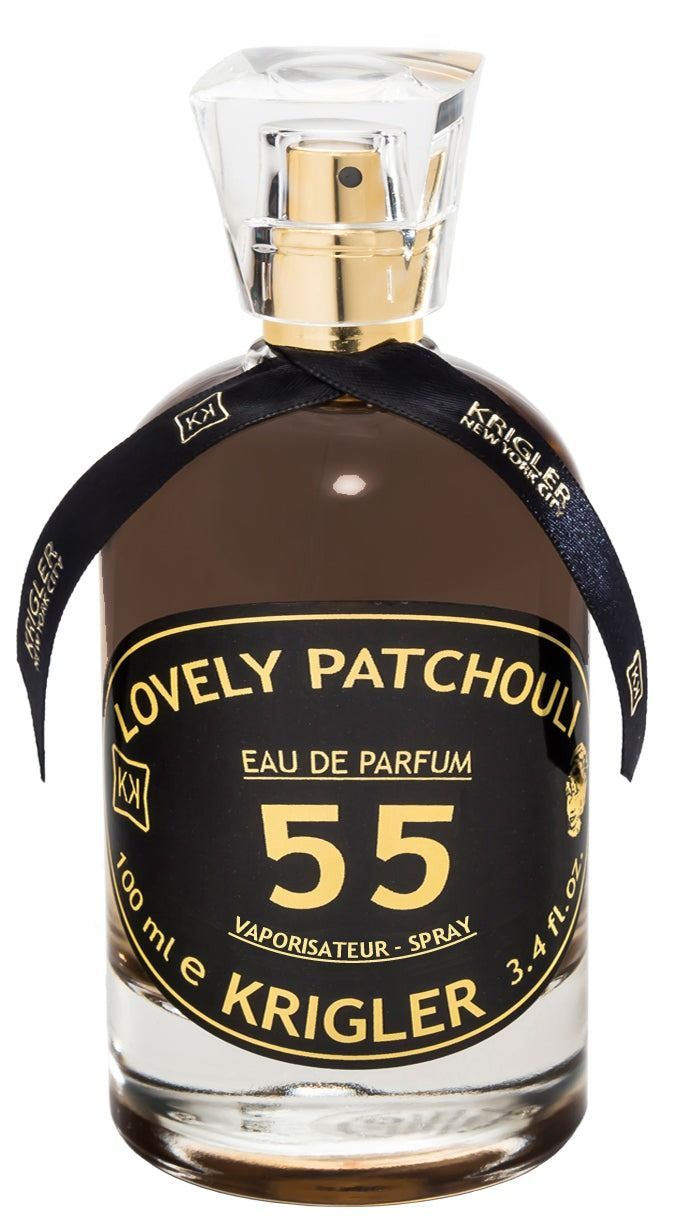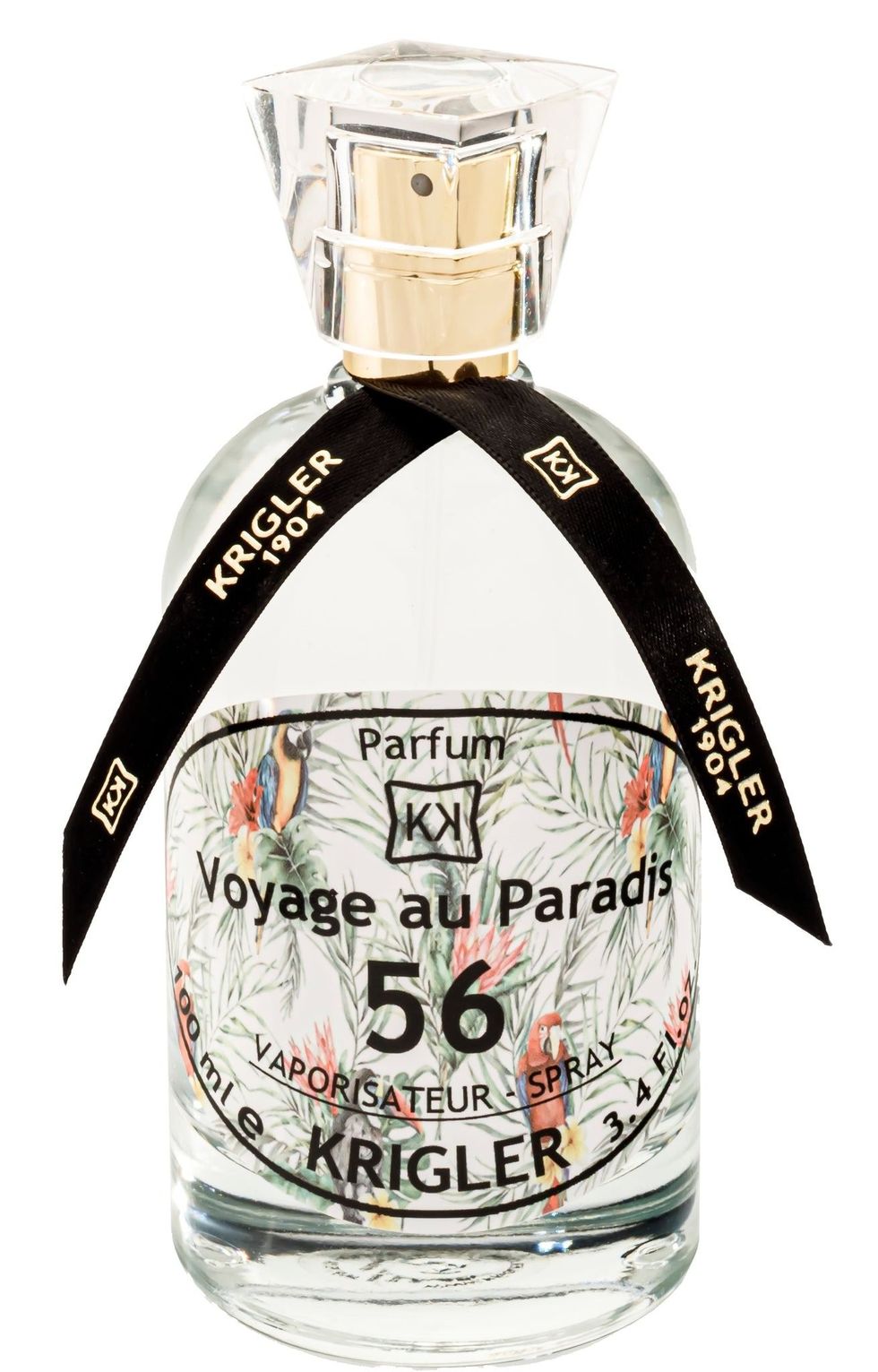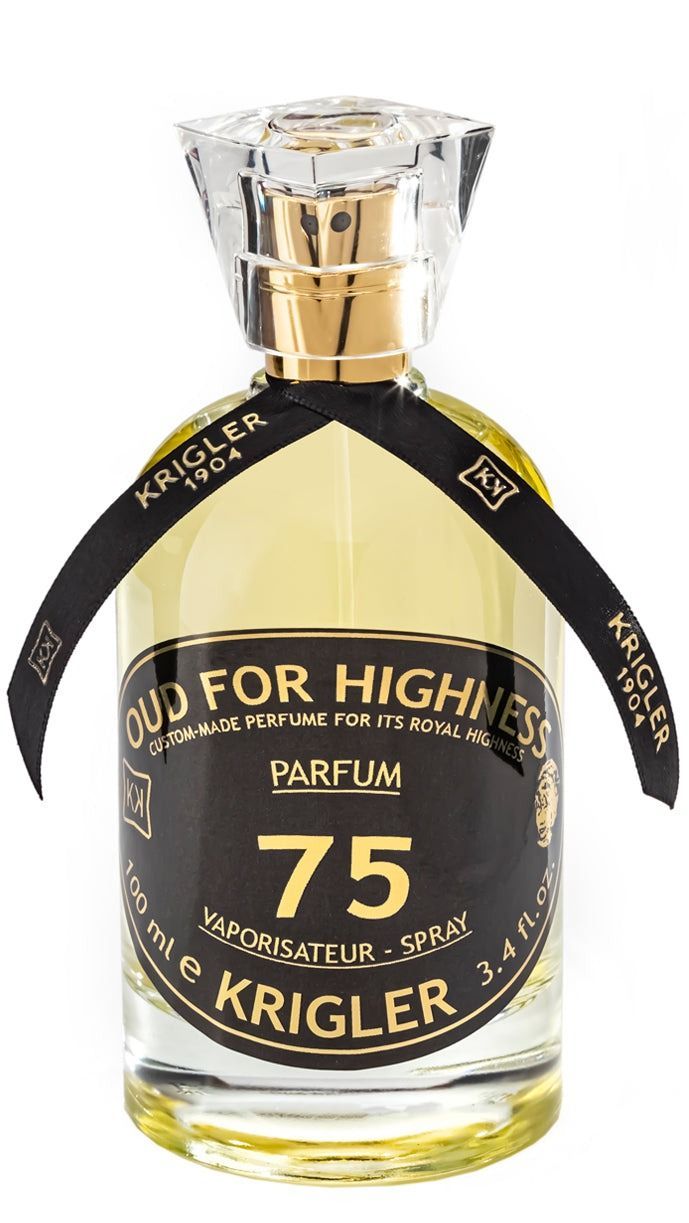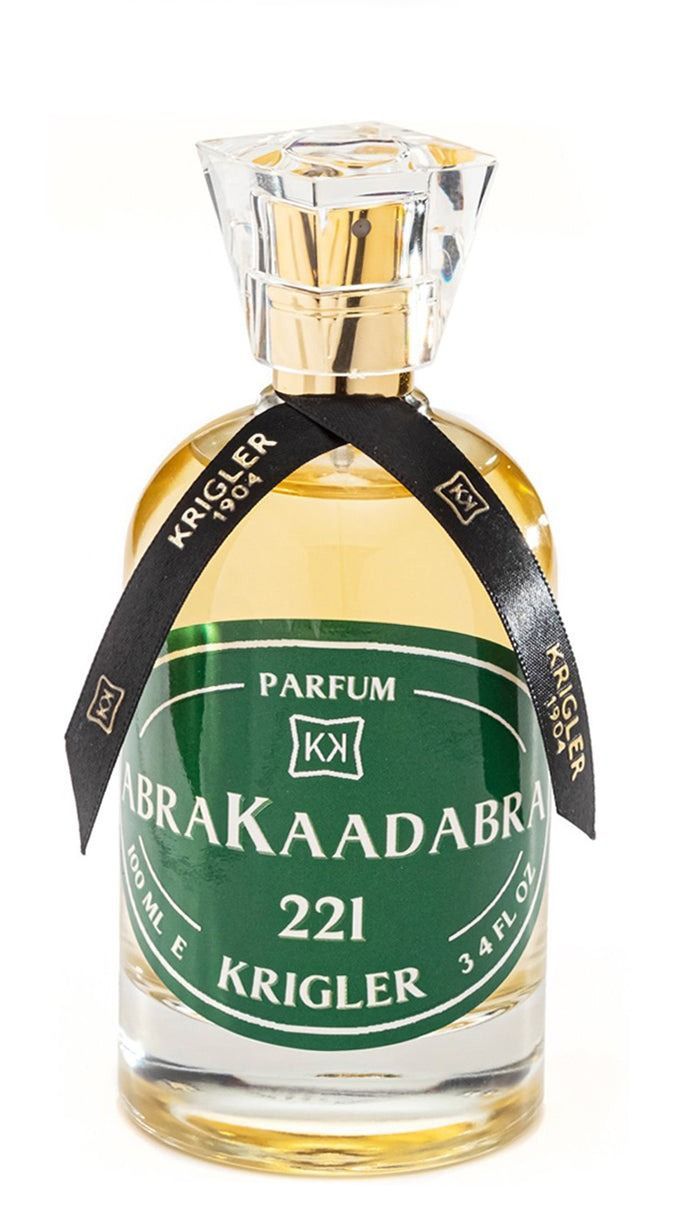It’s a cloudy day, but that doesn’t stop the twinkle in Ben Krigler’s eye or the brightness of his smile. We’re in the penthouse suite of the Hôtel de Paris Monte-Carlo in Monaco, and even with sweeping views of the Mediterranean Sea, the real sight to behold is the spread of Krigler fragrances at my fingertips. Many of them have been culled from the brand’s extensive archives, which boast over 750 scents. Ben, the fifth-generation heir to the perfume dynasty, proceeds to tell me everything there is to know about the house, founded by his great-great grandfather, Albert Krigler, in 1904. For the uninitiated, Monaco is an important part of the Krigler story—several perfumes were created on the French Riviera, and to this day, ingredients from the region are used to create its iconic fragrances.
Let’s start from the beginning. Albert was born and raised in Berlin, Germany. Before founding his eponymous brand, he was a chemist at the Rale Company, Europe’s modern-day equivalent to L’Oréal. At the request and invitation of the czar of Russia, he moved to Moscow with other elite perfumers, including Ernest Beaux—who would later become the nose behind Chanel No. 5—to open a large factory. Albert ultimately fell in love with a young French woman, and in 1879, created a fragrance to celebrate their engagement. Inspired by The Golden Temple in Kyoto, Japan, Pleasure Gardenia became the first perfume within the scentopia that is Krigler. “This perfume was later worn by Gabrielle Chanel, before she made her own fragrances,” Ben casually remarks.
As I deeply inhale notes of jasmine, vanilla, and mimosa mixed with Gardenia petals before drying down into a subtle, sexy, musk, I marvel, not just in the aroma, but the fact this fragrance is over 140 years old. Albert’s romance lives on: “And still today, we have a lot of people who come to our stores and purchase this one as the engagement scent,” Ben shares. Of course, House of Krigler is synonymous with elegance and luxury; in 1922, it famously took the idea of an engagement fragrance to the next level: “We created a perfume called Sparkling Diamond. It was created here in Monte Carlo…and there was a diamond inside the bottle,” Ben says proudly. The idea is that, when you finish the bottle, you break it to access the diamond and then get the ring made. “It will give you enough time,” Ben says, alluding the ring manufacturing process, then adds, “some people will spread the perfume as much as they can.”
You won’t find standalone stores for Krigler, but rather, shops nestled within 5-star hotels across the world. The first opened in St. Petersburg, Russia; however, it was safety, rather than business, that was at the forefront of Albert’s mind at the time. “It was the beginning of the revolution in Russia,” Ben explains. “Albert wanted to have his family in a safe zone.” A childhood friend that was a hotel manager in Berlin worked with Albert to create fragrances for guests to help signify the hotel as one of the best in Europe. “We are not in department stores; we don’t have a brick-and-mortar store on the street. We are only inside hotels.”
Krigler perfumes are easily recognizable by their artsy-looking bottles, emblazoned with numbers on the front that indicate the year each fragrance was created. This mark functions as a history lesson, and allows customers to become a part of history through bespoke perfumes. “The process takes about a year and a half to two years. We meet five or six times during that process and create the perfume the way you want,” Ben explains. It comes with a hefty price tag, too: the full experience costs about $60,000, with the King of Jordan and other aristocrats among those who have dreamed up scents as aromatic family heirlooms, sometimes even available to the masses.
“The way we make our perfumes is like the way we make wine: we distill the ingredients ourselves,” Ben says. The perfumes rest for up to two years before they are bottled. “The production is predominantly made with between 80 to 90 percent natural ingredients.” Because of this timeline, only a couple thousand bottles of each perfume are created annually. Offering an air of exclusivity that goes beyond the price tag, Krigler is the “quiet luxury” of the fragrance world.
With that in mind, here’s a rundown of the bestsellers, according to the fragrance historian himself.
Eleganter Schwan 06
One of the most costly in the collection, this fragrance was birthed as a scent solution to homesickness. “Albert was between Berlin and the Riviera because his wife was a bit homesick. She wanted to come back to the Riviera for the weather, even though she felt Berlin was nice,” Ben says. “This perfume is inspired by a castle in Bavaria, the same castle that inspired Disney’s Sleeping Beauty, and it’s made with Bavarian roses, which only bloom once a year. Only 1,000 bottles a year are made because it’s so unique.”
Chateau Krigler 12
This light, floral perfume was inspired by a Krigler family home in Champagne, France. “This perfume was made with flowers that surrounded the house,” Ben says. However, it wasn’t until the 1950s that the scent was popularized, when actress Grace Kelly won an Oscar for Country Girl. When a journalist asked her what was her lucky charm, she named this Krigler fragrance. “Grace Kelly was not living far from the Plaza Hotel in New York, about two blocks away. She used to come for tea time and actually saw my grandmother who had a store there. She fell in love with the perfume and bought it.”
Blue Escapade 24
“This perfume was a creation for a British Lord who had a house in Pierre Ritz, the Southwest part of France. It was inspired by a trip between Pierre Ritz and San Sebastian and is named after a property in the U.K.,” Ben says. The British Lord only agreed to five years of exclusivity, and then the perfume was incorporated into the Krigler collection. Eventually, Marlene Dietrich gifted the perfume to Cary Grant. “Albert actually knew [Dietrich] because he was a producer of cabaret shows in Berlin,” Ben explains. Her perfume of choice? Lieber Gustav 14.
Lieber Gustav 14
“This perfume is for women with a strong personality who actually will take charge of things,” Ben says. However, the story of this perfume runs deeper than Dietrich’s love for it. “It was actually inspired by the love letter between my great-grandmother and her fiancé,” Ben says. His grandmother’s fiancé passed away during World War I, where he served as a soldier while his great-grandmother was in Provence. “Albert wanted to create a fragrance that paid tribute to their love story because it was a bridge between Germany and France.” The notes, a mix of sandalwood and leather, combine “the tenderness of Provence and the decadence of Berlin,” Ben says. This fragrance was famously worn by F. Scott and Elda Fitzgerald, and 100 years later, by Leonardo DiCaprio, fittingly at the 2013 premiere of The Great Gatsby. (Original House of Krigler perfume bottles were used as props in the movie.)
America 31
Created in 1931, this was the first perfume made in America by House of Krigler. “This is how I became an American,” Ben declares. This perfume was worn by Ernest Hemingway and later John F. Kennedy—“He was a big fan of Hemingway. He was on vacation in the South of France and came over to our lab; when he heard this perfume was actually intended as a gift to Ernest Hemingway, he wore that fragrance. This perfume is known as the President’s Scent.”
Lovely Patchouli 55
“This perfume is more of an attitude,” Ben says. “A lot of people actually come to us and say, ‘When I wear it, it totally changes me.’ And it’s beautiful because it’s really getting into the [body] chemistry—good perfume will work with your body chemistry. Lovely Patchouli is really empowering, and it’s not every woman that can wear it. It’s an iconic scent in the U.S. because Jackie Kennedy wore it, but the amber vanilla [mixed with patchouli] is very unusual; people don’t expect patchouli to smell like this.”
Voyage au Paradis 56
“This one was inspired by the idea of a tropical paradise,” Ben says. “It was actually the last perfume that Albert created. It makes you feel really happy; it was created here on the Riviera as well.”
Oud for Highness 75
As Ben Krigler spritzes this perfume in the air, he shares that it was created by his mother in the very hotel we are sitting in, and she traveled back to Jordan to deliver it to the king himself. “It was presented in a custom-made trunk, made in Paris by an artisan who works for Goyard and Louis Vuitton,” Ben says. Not only does it take three years to create—it’s one of the most costly in the Krigler collection, as it contains oud from Japan and saffron, among 198 other ingredients.
Next up: Extraordinaire Camelia, created for the Princess of Monaco when she got married, and also the first perfume that Ben worked on with his mother. “We worked together on that project and it was like she was passing over the stick to me and saying, ‘Now you’re in charge,’” he fondly recollects. The perfume contains over 200 ingredients and is one of Krigler’s bestsellers.
However, it was the pandemic that inspired Ben to make his first-ever fragrance on his own, a continuum of his legacy. Abrakadabra 221 was birthed at the height of the COVID-19 pandemic. “I wanted to make people happy,” he says matter-of-factly, and adds, “I wanted to give people hope and evoke a spirit of healing.”
As Ben continues to speak, I listen intently, as if it’s a Disney fairytale. Except it’s not—it’s the fantasy-like narrative of a luxury perfume house. Being a nose is in his blood—literally. He remembers being about six or seven years old and his mother concocting perfumes in the kitchen. “I started smelling basil and I thought, ‘Oh, mommy is making pasta sauce,’” he says. In fact, she was making a fragrance with basil—much to the hungry child’s chagrin. “I was so mad. I was starving. I needed to eat.”
It was then Ben realized he wanted to create scents. “Fragrances have the power to influence you and make you think of something else, which is incredible,” he says. “Sometimes, when you smell something, it reminds you of your childhood, or it reminds you of somewhere you went at some point. Olfactive memory is very important—to your body and the way you conduct your life.”
Beauty Director
Danielle James is the Digital Beauty Director of ELLE.com. Previously, she was the Fashion and Beauty Director of HelloBeautiful.com and MadameNoire.com. She’s bylined for The Cut, InStyle, Allure, Business of Fashion, Nylon, Essence, Good Housekeeping, The Grio, and Huffington Post. Danielle enjoys sailing, thrifting, Japanese whiskey, Naomi Campbell’s runway walk, and Rihanna in the comment section.
